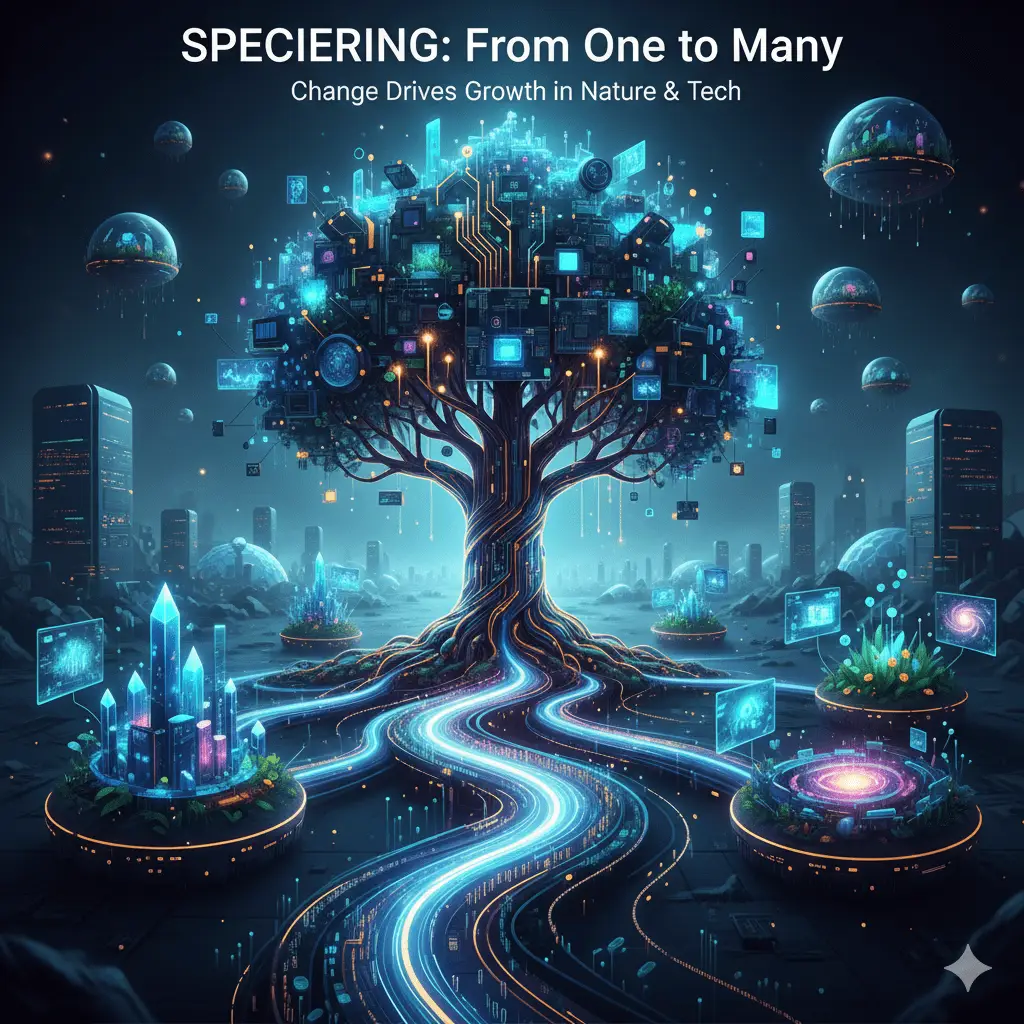Speciering: How Life Finds a Way Through Change
If you’ve ever sat outside and just watched birds hopping around or noticed a bug crawling across your table, you probably didn’t stop to think: these creatures weren’t always like this. They’re not fixed, timeless beings. They are snapshots in a long movie that’s still playing. That movie has a name: speciation—the process of new species coming into existence over time.
It sounds like a technical biology word, but honestly, it’s a lot more human and relatable than it first appears. Because speciation isn’t only about lizards on an island or strange fish in the deep sea. It’s about change. And change is something we all live through—in business, in relationships, in culture, and even in ourselves.https://techcrunch1.com/imsgtroid-review-android-imessage-2025/
So, what exactly is speciering?
At its simplest, speciation means this: one group of living things splits and slowly becomes two different groups that can no longer mix. It’s nature’s way of experimenting.
Imagine you’ve got a single group of early wolves. Some wander north into colder regions, while others stay in warmer forests. Over thousands of years, the cold ones grow thicker fur, bulkier bodies, and behaviors suited for the snow. The forest ones? They stay leaner, maybe faster, and better hunters in trees. Eventually, they’re so different they can’t even interbreed anymore. Boom—new species. That’s speciesism.
- It’s not always dramatic or sudden. It happens quietly, in tiny steps. A shift in the food source is one example. A shift in climate. A river that cuts through land and separates two groups. Little pressures like that, repeated for generations, and you end up with something new.
The Human Connection: Why Should You Care?
You might be thinking, “Cool biology lesson, but I’m not a scientist. Why does this matter to me?”
Because speciering is a lens for understanding change everywhere. Think about your own life. You’ve probably had moments where the old version of you stopped working. A job loss. A move to another city. A breakup. The habits, routines, and even the mindset that fit the old context didn’t fit anymore.
What did you do? You adapted. Bit by bit, you became someone different. Not overnight, but slowly—like speciering. You transformed into a new “version” of yourself that could handle the new environment.
Let’s stay in nature for a bit, because honestly, it’s full of stories that read like survival thrillers.
Cichlid fish in African lakes: A single lake can hold hundreds of species that all started from one ancestor. Some eat algae off rocks. Some chase insects. Some hunt other fish. They carved out niches to avoid competing directly—like businesses specializing in unique markets.
Each of these is speciating in action. And if you squint a little, you see echoes of our world: companies reinventing themselves in the digital age, cultures splitting into new subcultures, and even friendships shifting directions over time.
Specializing in Society and Culture
Let’s step away from animals for a second. Think about music. Rock didn’t just appear. It “speciated” out of blues and jazz. Then rock itself split into punk, metal, indie, and grunge. Each one adapted to a slightly different environment—social moods, technology, audiences.
Or languages. Latin didn’t vanish when Rome declined. It fractured into Italian, Spanish, French, and Portuguese. Same roots, new branches. That’s cultural speciering.
And technology? The internet itself is one giant speciering lab. Think about how social media started as simple profiles. Now you’ve got Facebook for family, LinkedIn for work, and TikTok for creativity. Each platform evolved for its own niche audience.
The Psychology of Speciering
Now, let’s bring it closer to the individual level. Psychologists often talk about identity shifts. When life throws challenges—chaos, uncertainty, adversity—we’re forced to adapt.
These are psychological forms of speciation. The old identity or mindset splits, and something new grows in its place.
- The Trap of Waiting for Stability
Here’s the kicker: most people resist speciering because they’re waiting for “calm.” They tell themselves:
- “I’ll start that project when things settle down.”
- “I’ll change careers once the economy is stable.”
- “I’ll work on myself when life stops being so messy.”
But calm never stays. Chaos is the default. That’s true in evolution and in life. Species don’t evolve during peaceful stasis; they evolve because conditions are changing. The storm forces the adaptation.
So maybe the question isn’t “How do I get back to normal?” Maybe it’s “What new version of myself can emerge because of this?”
Personal Growth: Becoming Your Own Species
Let’s be real. Everyone has a before-and-after story. Before the breakup. Before the illness. Before the layoff. And then… after.
Those “afters” are moments of personal speciering. You shed an older version of yourself. It doesn’t mean that version was bad. It just wasn’t fit for the new environment.
Think about it:
- You might have been shy, but moving abroad forced you to open up.
- You might have been reckless, but becoming a parent reshaped your priorities.
- You might have been stuck, but failure cracked you open for reinvention.
That’s speciesism. It’s messy, sometimes painful, but it’s the process of becoming something new.
The Future of Speciering
In the digital age, speciesing is speeding up. Technology accelerates change so much that we may see cultural and personal shifts in years instead of centuries.
Education: Online learning is creating new “species” of learners—independent, self-directed, and global.
Work: Remote work has split organizations into office-centered vs. digital-first species. Both valid, both evolving.
Identity: Social media gives people freedom to “speciate” identities—gamer, activist, entrepreneur—sometimes all in one lifetime.
Speciering reminds us the future won’t be one-size-fits-all. It’ll be a messy, diverse ecosystem of lifestyles, ideas, and communities.
The Takeaway: Change Is the Rule, Not the Exception
Here’s the thing: life doesn’t promise calm. It promises storms, forks in the road, and unexpected detours. And in those moments, you’ve got two choices: cling to the old form until it breaks, or speciate into something new.

